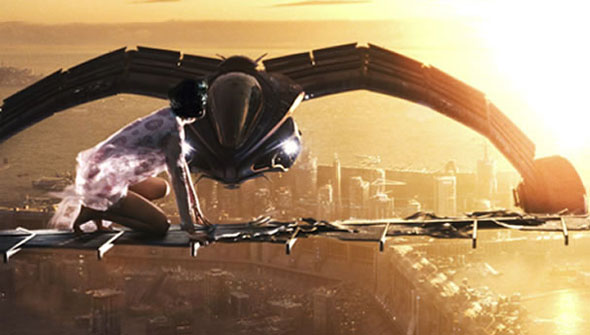Cloud Atlas
Journey on the path of humanity
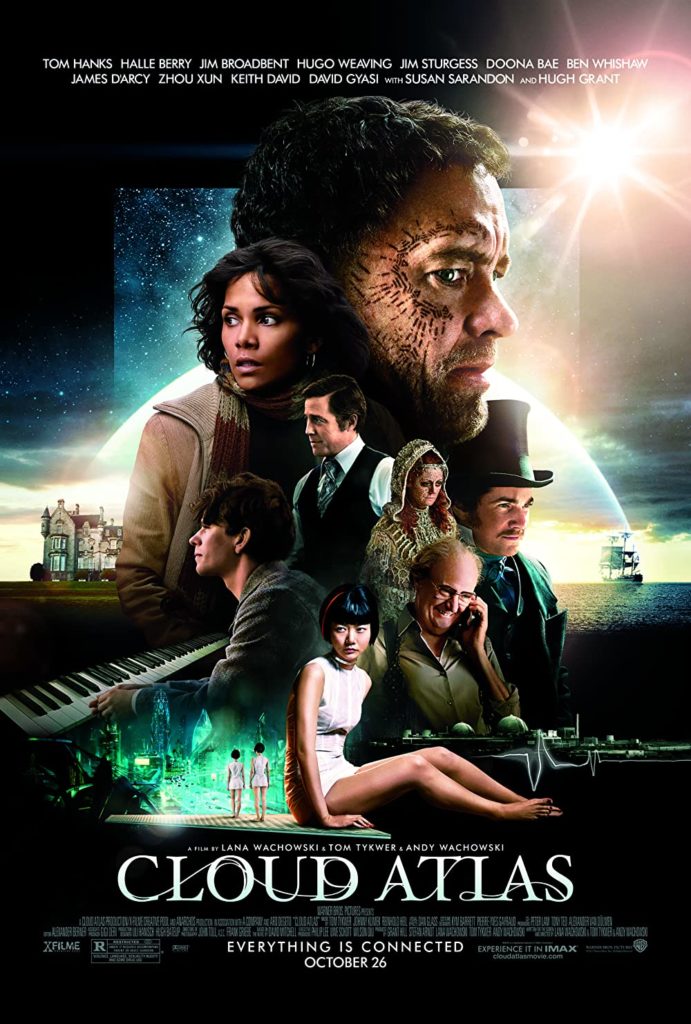
When I heard about the movie “Cloud Atlas” (USA, 2012) had been directed by the Wachowski sisters, I became a little suspicious. After all, although they revolutionized movie market with the surprising “The Matrix” (USA, 1999), made two confusing sequels, which did not please me. But as the third participant in the direction was the German Tom Tykwer, of the exceptional “Perfume: The Story of a Murderer” (GER/USA, 2006), I was quite interested.
“Cloud Atlas” is a great film, not only for its almost three hours of duration, but for the complex script, with six stories happening at different times, frequent correlations and a basic philosophy that will certainly please the sympathizers of spiritism.
The premise of the film is that we live several lives, and what we do in each of them influences the next one. The film discusses it in a dynamic way, leading the viewer to follow stories that go from the 19th century to a post-apocalyptic future, in an undefined time.
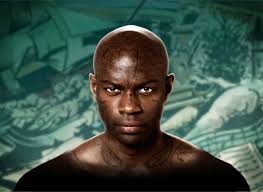
In the 19th century, Adam Ewing (Jim Sturgees), a young lawyer, is sent by his family to negotiate new slaves. On the troubled journey back, afflicted by an illness of unknown cause, he saves a slave, Autua (David Gyasi), while an ambitious doctor, Henry Goose (Tom Hanks), accompanies him. His bitterness is recorded in a diary, which he writes to his wife.
In 1930, the young and talented composer Robert Frobisher (Ben Whishaw), disinherited by the family for being homosexual, helps the elderly musician Vyvyan Ars (Jim Broadbent). While searching for the creation of the perfect music, Robert finds the diary written by Ewing among Ars’ books. In the midst of conflicts with the boss, Robert entrusts his hard-working cards to lover Rufus Sixmith (James d’Arcy).
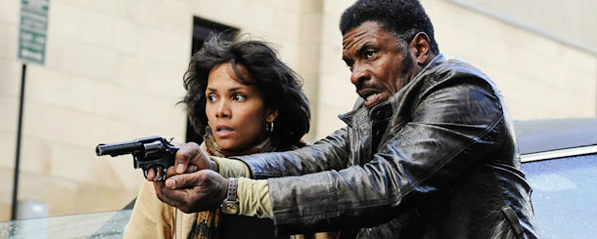
In 1970, journalist Luisa Rey (Halle Berry) meets Rufus Sixmith (James d’Arcy) when the elevator in which they are both breaks. Later, he seeks to reveal that they are covering up a series of flaws in the design of building a nuclear reactor. When he is murdered, she receives unexpected help from Isaac Sachs (Tom Cruise) and Joe Napier (Keith David).
Nowadays, Timothy Cavendish (Jim Broadbent) is the owner of a small publisher, who has released a book that will hardly give financial return. However, the situation changes when the author of the book kills one of his critics, becoming an instant celebrity. The problem is that Cavendish happens to be chased by a bunch of rioters and ends up in a home for the elderly, where he will lead a funny rebellion.
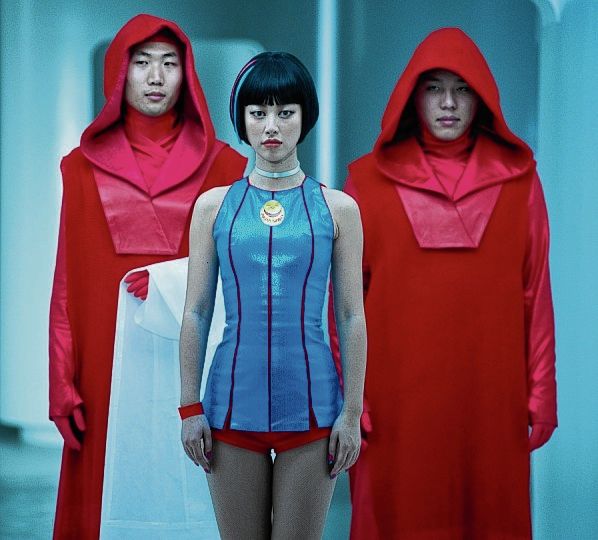
In a few centuries in the future, in the New Seoul megalopolis, Sonmi-451 (Donna Bae) is a clone who works in a fast-food restaurant. She was programmed to perform the same tasks every day, without expressing any complaint, but the situation changes when she is awakened to question about her own existence. Aided in the escape by young rebel Hae-Joo Chang (Jim Sturgess), she faces the difficult decision to become the spiritual leader of a rebellion.
In a distant future, after an event known as The Fall, the rare lands that survived the rising seas are the stage for a post-apocalyptic reality. At this time lives Zachry (Tom Hanks), from a tribe that venerates the goddess Sonmi, and fears the influence of the demon Old Georgie (Hugo Weaving), as well as the cannibal neighbors. His life changes when Meronym (Halle Berry), a member of an evolved group called Prescients, asks him to lead her to a dangerous place in the heart of the island.
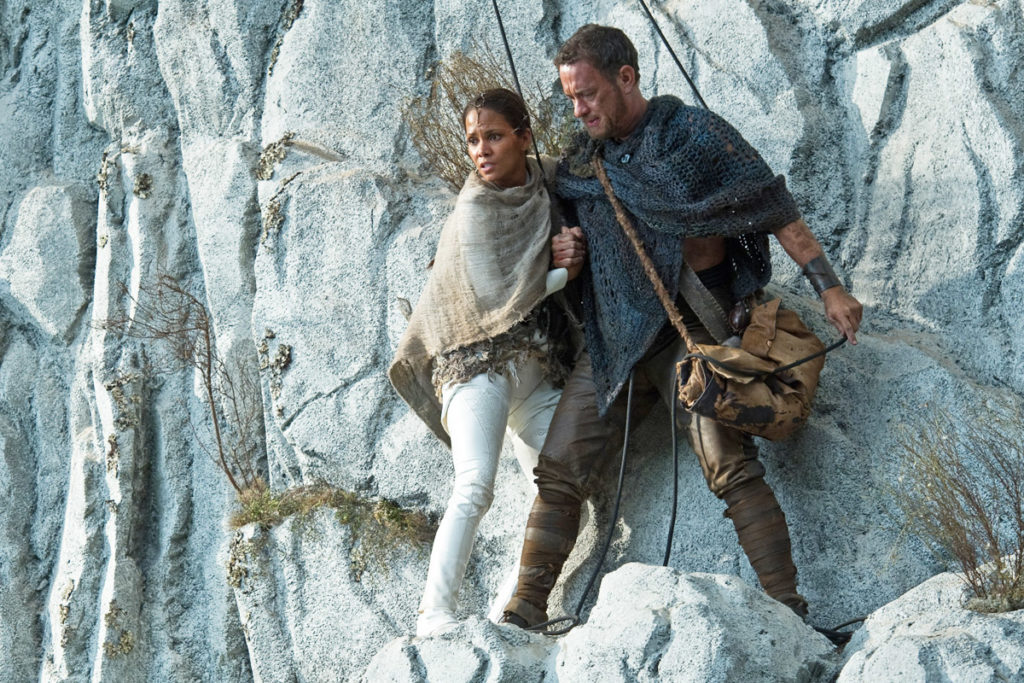
The unfolding of the film can be a little confusing so that you are expecting a linear or superficial story, but for the attentive viewer, it is amusing to follow each story, and especially try to identify which actor is acting, since most participate in almost all segments. In the final credits, appears a brief image of each character lived by each actor.
Although it has no profusion of special effects, with the exception of the story in New Seoul, the stories are interesting and hold the viewer’s attention, to the point of barely noticing the three hours of the film’ duration.
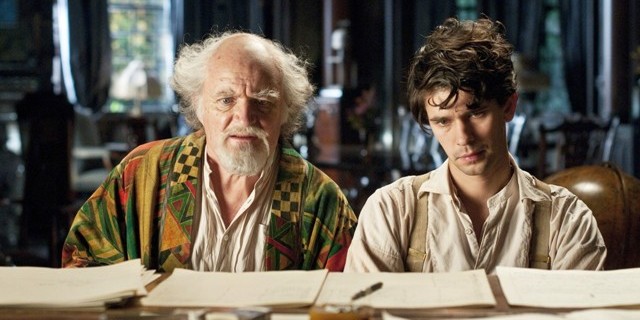
Philosophical questions are not much explored, although it is a movie that deserves to be reviewed from time to time, such as the number of characters, situations and facts presented. The film is based on the book “Cloud Atlas” by David Mitchell. This film is available on Looke platform.

